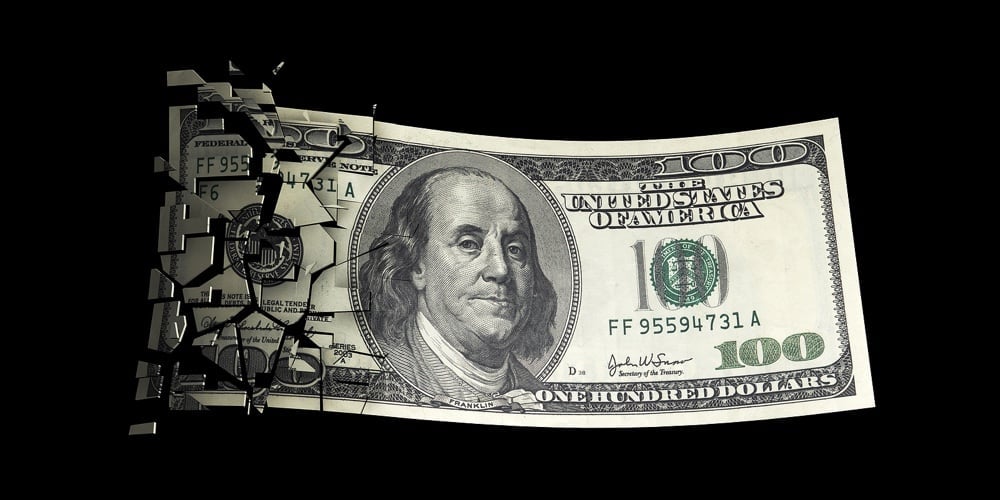Recessions are the equivalent of an economic winter. Like the weather, some are mild and relatively brief such as the recession that occurred in the early 2000s. That one lasted only 8 months and saw a slight 0.3 percent decline in GDP.
Others are severe and feel like they will last forever. The Great Depression is the benchmark for brutal economic winter. That one officially lasted for 3 years 7 months and experienced a 26.7 percent decline in GDP.
The obvious questions for every credit union executive and leadership team are when will the next winter arrive and how brutal will it be?
The economy, it turns out, is also about as predictable the weather. You can forecast what will happen tomorrow with a high degree of certainty. Predicting the date of the first snow 12 to 24 months from now is next to impossible.
Warning signs are flashing, however. You see them reported every day. A substantial majority of economists believe our next economic winter will arrive by the end of 2021. It could be even earlier depending on what happens with trade wars and the global economy.
Predictions about its severity are much less certain, and the impact is likely to be uneven. The recession in the early 2000s was mild on a macro level. It was brutal if you were in the tech industry after the dotcom bubble or the hospitality industry after the terrorist attacks of September 11, 2001.
You can be certain of this—we are overdue for winter. Business cycles last an average of 4.7 years from expansion through recession. The average recession lasts just over 17 months of that period. The average growth cycle lasts a little over 3 years. We’ve experienced a longer growing season because of policies and actions designed to control the climate.
Preparing Yourself for Winter
Animals in the wild begin preparation for winter as soon as they sense changes in the weather. The best credit unions do the same. They operate in a positive state of productive paranoia. Their antennas are always up and their senses are heightened at the first sign of a change in the economic weather.
Here are four strategies to prepare for the downturn that is ahead.
Commit to stay visible.Some animals fly south to escape the cold. Others hibernate until spring. Your credit union doesn’t have either option if you want to maintain members’ trust. There has to be a commitment to stay visible in order to remain relevant. Leaders don’t hide or run in the face of tough times.
Conserve where you should. Have you ever reminded a member to put money away for an emergency or to start planning for retirement? Have you ever been frustrated by them ignoring you until it is too late to do much about it?
It is the human version of Aesop’s the Grasshopper and the Ant fable. Humans are better at responding to present danger than impending threat.
Now is the time to optimize your expenses to operate as lean as possible to achieve your purpose and vision. You will need a disciplined leadership approach to ensure that your dimes are working like dollars.
Be intentional with your energy and resources. Legendary investor Warren Buffet views economic downturns as a buying opportunity. He is intentionally invests his resources in companies that will yield a high return over the long run.
Every credit union’s ability to acquire or merge with other assets is unique and based on their long-term strategy. But, now is the time to begin scouting for those opportunities.
There are three areas where every credit union should make intentional investments today to flourish when tough times hit:
- Increasing your relationship and partnership with members:Consumers become more cautious in even a mild downturn. They are tempted to hibernate during a recession. Now is the time to add so much value that your members can’t forget you. They will need your help more than ever in tough times. You make them a partner for life if you can help them.
- Optimizing your talent and operational processes:The people you need combined with processes that remove every possible piece of friction gives you a competitive advantage. Don’t be the organization that is forced into playing catch up because it wasn’t intentional today.
- Strengthening your culture:The culture always wins. Great cultures create great execution and customer experiences. Great execution and customer experiences create great brands. And, great brands give you credibility, longevity, and cache in every economic environment.
Become nimble now to remain responsive. The ability to quickly change and adapt in pursuit of your purpose and vision is the difference between insistence by your members and irrelevance. It is also a habit to that can be developed and strengthened.
You get better at change by consciously changing more often and more strategically. Now is a good time to help everyone hone their change competency by encouraging focused urgency to prepare for the future.
Herb Kelleher, founder of Southwest Airlines, once said that he the company’s pilots had accused him of “predicting 11 of the last three recessions.”
In other words, no one can control when economic winter appears. You can only control how you prepare today for its eventual arrival.







